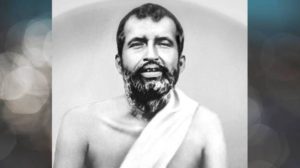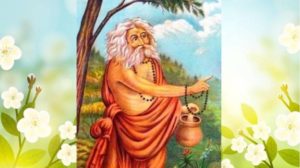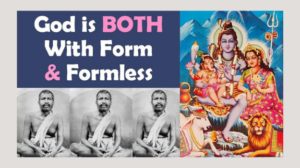Why do Hindus worship so many Gods? Is Hinduism a polytheistic religion? Why is the cow sacred? Why is the river Ganges considered so holy? Why is the sun worshiped?
These are some of the questions that naturally arise in most people’s minds when they look at Hinduism from the outside.
For those of us who have grown up in the rich Hindu tradition of India, when someone asks us these questions, often we too are puzzled, because these form such an integral part of our daily existence that we have never really stopped to think about it.
So here is a beautiful and profound explanation, for those of us on the inside, as well as the outside, gathered from the spiritual works of the great modern-day gurus of India.
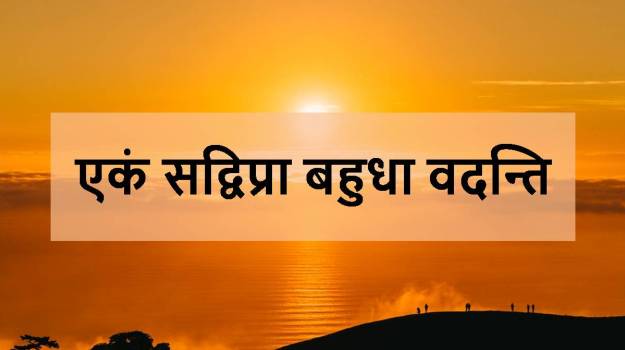
– A Sanskrit verse from the Rig Veda that explains the idea behind the many Gods in Hinduism.
The Worship of Many Gods in Hinduism, Has its Genesis in the Discovery of the Ultimate Reality, the Source of all Creation, by the Ancient Sages of the Vedas
The religion of the Hindus has its roots in the Vedas, the sacred books whose philosophy forms the firm foundation upon which it rests. Of the 4 Vedas, the oldest is the Rig Veda, whose hymns date to at least 4500 BC or earlier.
Besides detailing ceremonies and worships aimed at refining a person’s inner character, the Vedas contain records of stupendous truths concerning the nature of our Universe, as witnessed by the ancient rishis (sages) in the super-conscious states of meditation.
The sections of the Vedas that detail these transcendental truths are called the Upanishads, and the philosophy that they propound is called Vedanta.
Apart from chronicling facts about our world that are strikingly congruent with the discoveries of modern science, such as evolution, the theory of space, time and causation, as well as the atomic structure of matter; the sages of the Vedas speak in tremendous detail, of the presence of an Ultimate Reality, which is the source of all Creation.
They call this Reality, Brahman or God and describe it to be an extremely subtle, all pervading and infinite ocean of consciousness.
It is From This Ocean of Consciousness, That Both Matter and Living Beings Originate
According to Vedanta, just as waves rise up in the sea, so too the entire phenomenal Universe comprising living-beings (Sanskrit: chetan), and matter (Sanskrit: jad), emanates from one ocean of consciousness. (For more on this, visit the earlier sub-sections: God is Not a Person Residing in Heaven, instead He is the Infinite Ocean of Consciousness)
“The whole of this universe is a peculiar form; The Absolute (God) is that ocean while you and I, and suns and stars, and everything else are various waves of that ocean.”
– Complete Works of Swami Vivekananda, Volume 2: The Absolute and Manifestation
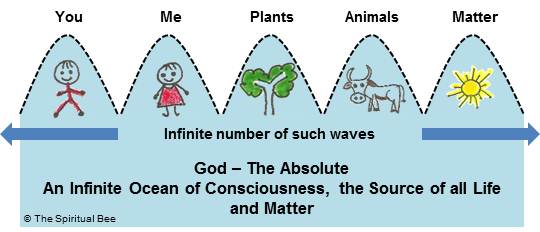
Even matter and the forces that govern matter, are a manifestation, or a mode of vibration, of this ultimate “substance” of consciousness.
“There is no such thing as dead matter. You may call this table dead matter but there is life in it. Everything is alive and the prana or life-force is all pervading. It is the cause of molecular activity; it is the cause of the movements of the electrons. When the latent life force leaves the table it will disintegrate into electrons and vanish into the ocean of eternal energy.”
– Complete Works of Swami Abhedananda, Volume 6: Sanatana Dharma page 165 + Universal Religion page 179. Swami Abhedananda was one of the 16 direct disciples of Sri Ramakrishna, in whose able care Swami Vivekananda had entrusted the New York Vedanta Society.
“There (in the causal body) one perceives all created things – solids, liquids, gases, electricity, energy, all beings, gods, men, animals, plants, bacteria – as forms of consciousness.”
– Autobiography of a Yogi, Chapter: Resurrection of Sri Yukteswar. (World, India)
Thus the divinity of God resides everywhere and in all things. “Just as the ocean pervades all waves, just as clay pervades all pots, just as gold pervades all ornaments, so too God permeates all things.”(Swami Chinmayananda in this video)
It is This Truth That Finds a Beautiful Expression in the Many Deities of the Hindus
The ancient rishis of the Vedas were poets, artists and creative personalities at their very core.
“Whenever they saw beauty in nature, strength in nature, power of nature, even through them all, they saw the mighty Source of all beauty, all strength and all power – the (One) Lord expressing Himself.”
“The vastness of the sky, the majesty of the ocean, the grandeur of the mountains, the rumbling rivers, everything that they saw around, even the shapeless stones were to them, a rhythm, a happiness, a presence everywhere of the divine infinite Lord.”
– Swami Chinmayananda in a talk on the Kaivalyopanishad (15.05 minutes)
They sought to inculcate this sublime idea, that God is present in all forms of creation, into the minds of the ordinary person, by ascribing a divinity and a sacredness to the various elements of nature – especially those that are beneficial to mankind.
Thus they taught that: God is present in air, water, fire and electricity (lightening) as Vayu, Varuna, Agni and Indra. He is present as the spiritual light, which shines behind the physical light of the sun. He is present in the life giving waters of the Ganges, which have nurtured the Indian civilization since its infancy. He is present in the cow, who nourishes children with her milk and butter. He is present everywhere, even in you and I, and therefore comes the salutation, Namaste –”I bow to the divinity within you.”
Through it all, the rishis of the Vedas emphasized the profound truth that Nature is not an element separate from us, to be conquered and exploited; instead, it is one with us – an extension of our very own Self, and thus must be loved, nurtured and protected.
Apart from Worshiping the Various Elements of Nature, there is a Second Aspect from which Arise the Numerous Gods and Goddesses of Hinduism
Vedanta being an extremely rational and scientific philosophy, does not demand the blind acceptance of religious doctrines as God-given and true; instead it encourages each person to seek and realize the truth and God for themselves.
“What is the proof of God? Direct perception, Pratyaksha. The proof of this wall is that I perceive it. God has been perceived by all who want to perceive Him. But this perception is no sense perception at all; it is super-sensuous, super-conscious.”
– Complete Works of Swami Vivekananda, Volume 1: Steps to Realization
One of the ways to attain God-perception is through prayer, contemplation and meditation. The goal being to focus our minds on certain specific attributes of the Supreme, such as truth, love, and purity; and make these qualities manifest in our inner nature.
In this way, the hard shell of the ego, which confines our consciousness into a wave, is gradually chipped away, and our spirit is freed to unite with the ocean of God. (For more, visit: Why should we be good, when being selfish is more rewarding?)
Now in trying to get ordinary people to mediate, the rishis of the Vedas faced a dilemma. The inexperienced minds of most people are unable to focus on the qualitative attributes of a formless, infinite God. For example, it is very hard to meditate on goodness, by imagining a blank space or a void.
“This is because the mind can focus only on those properties which it can perceive through the five senses of sight, smell, sound, taste and touch. Even amongst these, the sense of sight (for example, a picture which signifies goodness) is the most effective tool with which the mind’s attention can be fixed for long periods of time.”
– A translation from Pandit Shriram Sharma’s Hindi essay, The Many Gods in Hinduism are a Symbolic Representation of the Various Powers of One Supreme God.
Keeping this psychological truth in view, the rishis contemplated images for the various attributes of God. Here it is important to note that God is not just an infinite mass of consciousness. Being conscious alone is not sufficient to create anything. For that you need power (shakti), intelligence and capabilities, and the Supreme is full of these.
Thus the sages, took the countless attributes of the Universal Lord, and creatively depicted each of them in the forms of the various Gods and Goddesses of Hinduism:
For example, as the creator of the universe, the Supreme is symbolically represented as Brahma; as the sustainer and nourisher of the world, He is depicted as Vishnu; and as the power which keeps creation in balance, He is represented as Shiva.
Similarly, that aspect of the Supreme which guides our intellect on the path of righteousness is called Mother Gayatri; the power which enhances our creativity is Goddess Saraswati and the courage that helps us leap across oceans, is Lord Hanuman.
In this way arise the multitudinous deities of the Hindus. The purpose of these idols being, to aid the mind of the devotee during prayer and meditation.
“The various Hindu Gods all exist, but not independently. Just as the seven colors exist within one ray of light, so too these various Hindu Gods exist within the Supreme, as names of his different qualities.”
“It is for this reason that the Vedas declare, “Ekam sad vipra bahudha vadanti” – God is One, whom the sages call by various names.”
– A translation from Pandit Shriram Sharma’s Hindi essay, A Look at the Controversy Over Many Gods in the Hindu Religion.
Thus in conclusion, Hinduism is a monotheistic religion. The many Gods of the Hindus are simply a creative acknowledgement of the numerous powers and manifestations of the One Supreme Lord. His manifestations are worshiped as the various elements of nature (jad), while His conscious powers (chetan) are worshiped in the form of different Gods and Goddesses.

